Fight for marriage equality in Switzerland continues
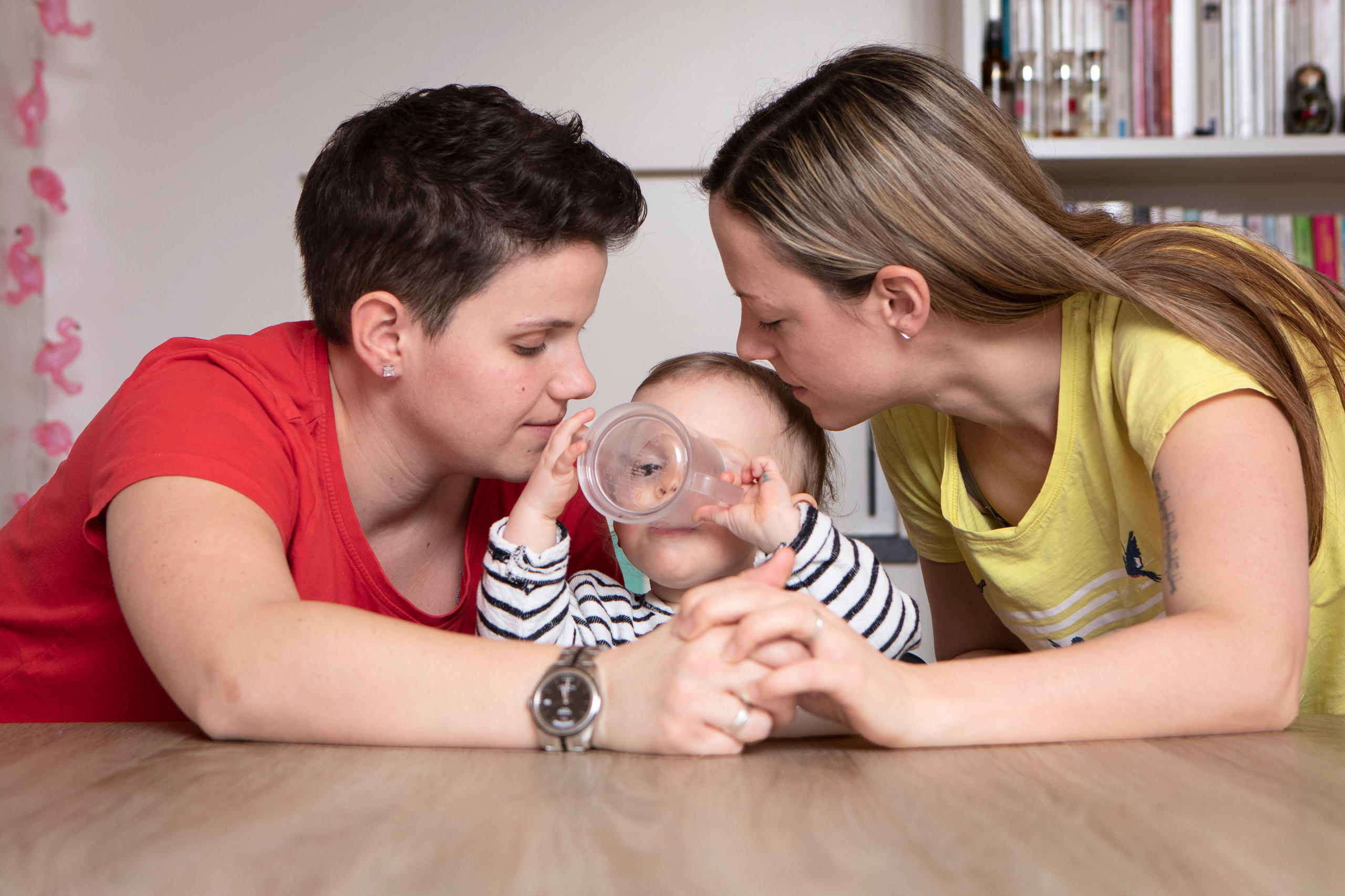
After years of enduring criticism from international organisations for its lack of progress on LGBTIQ issues, today the small Alpine country is paving the way for the legalisation of same-sex marriage and granting other rights to gay couples. But the fight for equality is far from over.
Switzerland is one of the few remaining countries in Europe where it is not possible for lesbians and gays to get married. On December 1, the country signalled its intent to play catch-up. Like the House of Representatives before it, the Senate voted in favour of “marriage for all”. The legislative proposal also foresees allowing lesbian couples access to sperm donation, facilitated citizenship for partners and co-adoption rights.
For pro-LGBTIQ (lesbian, gay, bisexual, transgender, intersex and queer) groups, the fight for progress has been a lengthy one.
“The Senate vote is a huge victory and step forward on the road to equality,” said Matthias Erhardt, vice-president of the national “marriage for all” committee.
Slow pace of progress
The Swiss political process take time, but this particular project has been seven years in the making. “Marriage for all” was launched in 2013 through a parliamentary initiative of the centrist Green Liberals. Several versions of the text have since been debated in parliament.
The country can hardly be accused of being forward-thinking. The Netherlands was the first country in the world to allow same-sex marriage, back in 2001. By the time Switzerland introduced civil partnerships for same-sex couples in 2007, five European countries (The Netherlands, Spain, Norway, Sweden and Iceland) had already granted same-sex couples the right to civil unions as well as parental rights – including adoption, access to medically-assisted procreation and recognising both same-sex partners as parents at the birth of a child.
International criticism
These legal gaps earned Switzerland criticism from various international bodies. In one of its universal periodic reviews, the United Nations Human Rights Council pointed the finger at laws that were discriminatory towards homosexuals.
In recent years the country has fallen to 27th place in a ranking by the ILGA Europe advocacy group on equal rights for LGBTIQ people. After passing a law in February 2020 that protects the gay and bisexual community against discrimination and hate, Switzerland moved up to 23rd place, with an equality rating of 36%, still below the European average of 48%.
Now the vote in the Senate is being hailed internationally as a welcome development.
“This is good news,” said Katrin Hugendubel, campaign director at ILGA Europe. “LGBTIQ persons have taken a step towards obtaining the same family rights as everyone in Switzerland.”
Amnesty International calls it “a historic decision for equal rights”.
“Switzerland finally recognises that there is no reason to deny fundamental rights to homosexual couples and rainbow families,” said Alexandra Karle, director of the Swiss section of Amnesty.
More to do
But further steps are needed to secure equal rights for LGBTIQ people in Switzerland, say specialists.
Amnesty International spokesperson Nadia Boehlen, for example, deplores the fact that Swiss law does not allow for punishment relating to discrimination of transgender people.
ILGA Europe believes that Switzerland should also outlaw medical interventions on intersex minors when they are not necessary. It also stresses that the federal authorities should make efforts in the area of asylum granted to homosexual people. The European Court of Human Rights last month ruled against Switzerland’s intended deportation of a homosexual Gambian man, saying it had not properly examined the risks to which the man would be exposed.
It is also difficult to gauge the scale of discrimination or violence against the LGBTIQ community in Switzerland as national statistics are unavailable.
Not for a while
The first same-sex marriage in Switzerland is not likely to occur for some time. Parliamentarians in the House of Representatives will once again examine the issue during the current winter session in Bern to iron out any differences.
At the same time, the Federal Democratic Union, a Christian, ultra-conservative party, has already announced its plans to launch a referendum against the “marriage for all” project.
The political process is far from over. Yet, Swiss mentalities appear to have shifted. A survey commissioned by Pink Cross – the Swiss organisation of gay and bisexual men – in February 2020 showed that over 80% of Swiss respondents said they supported same-sex marriage.

In compliance with the JTI standards
More: SWI swissinfo.ch certified by the Journalism Trust Initiative









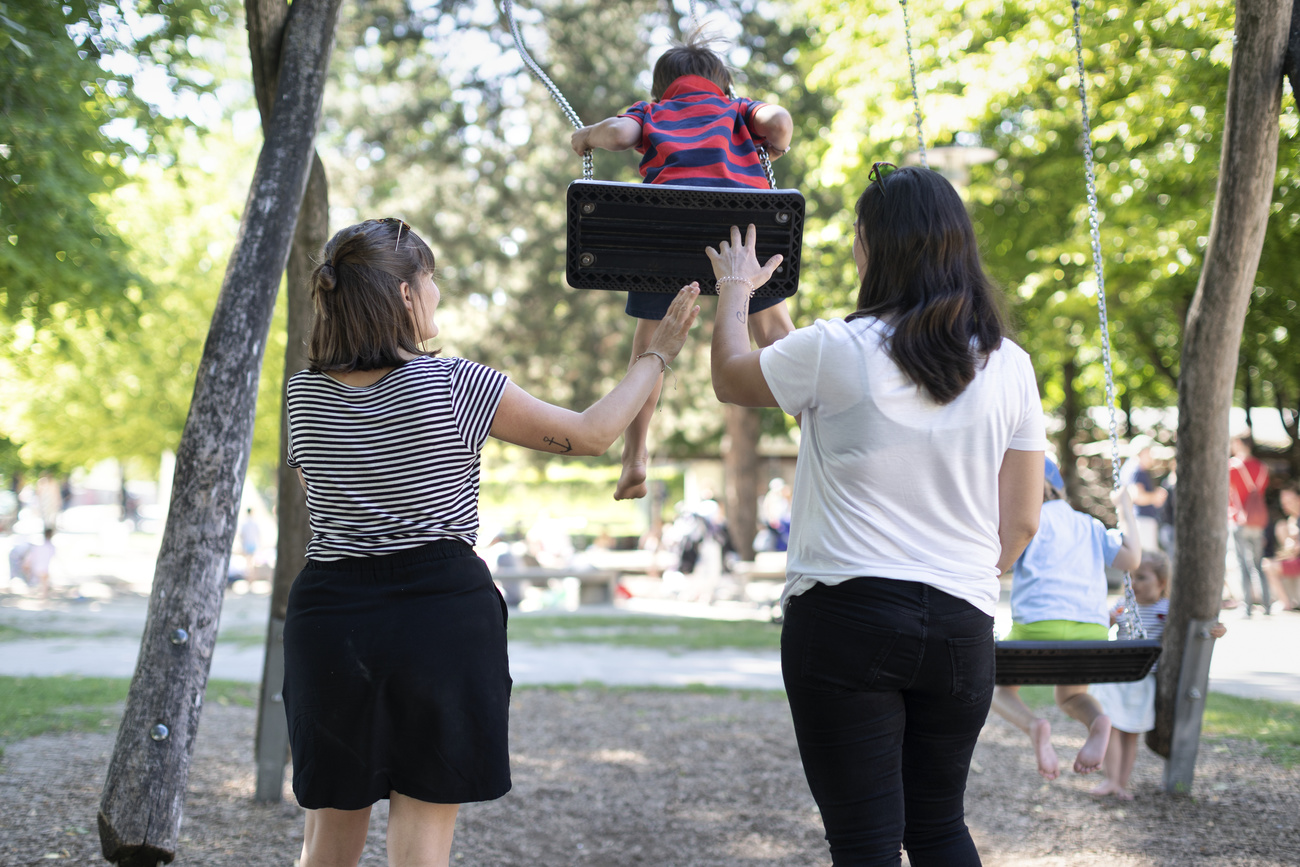

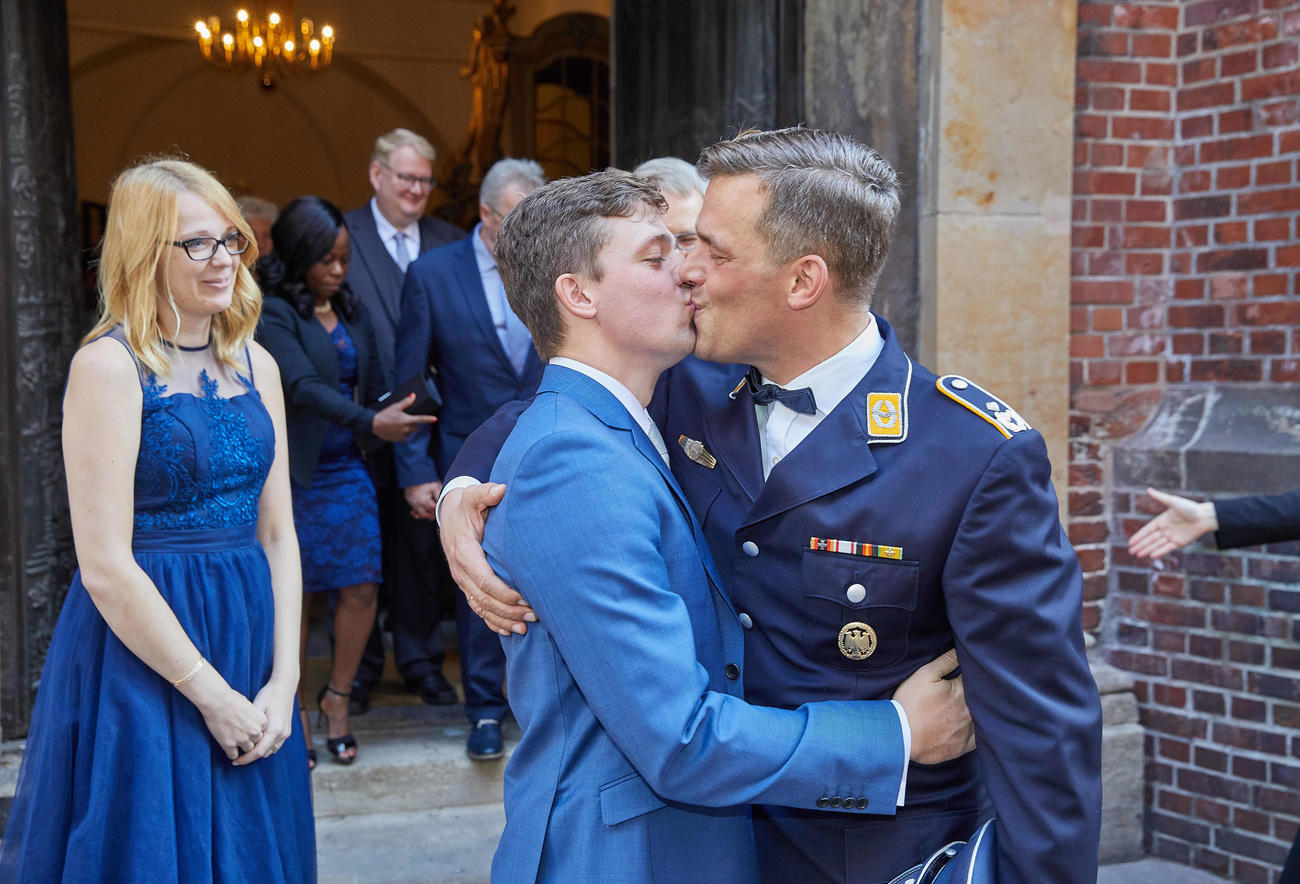
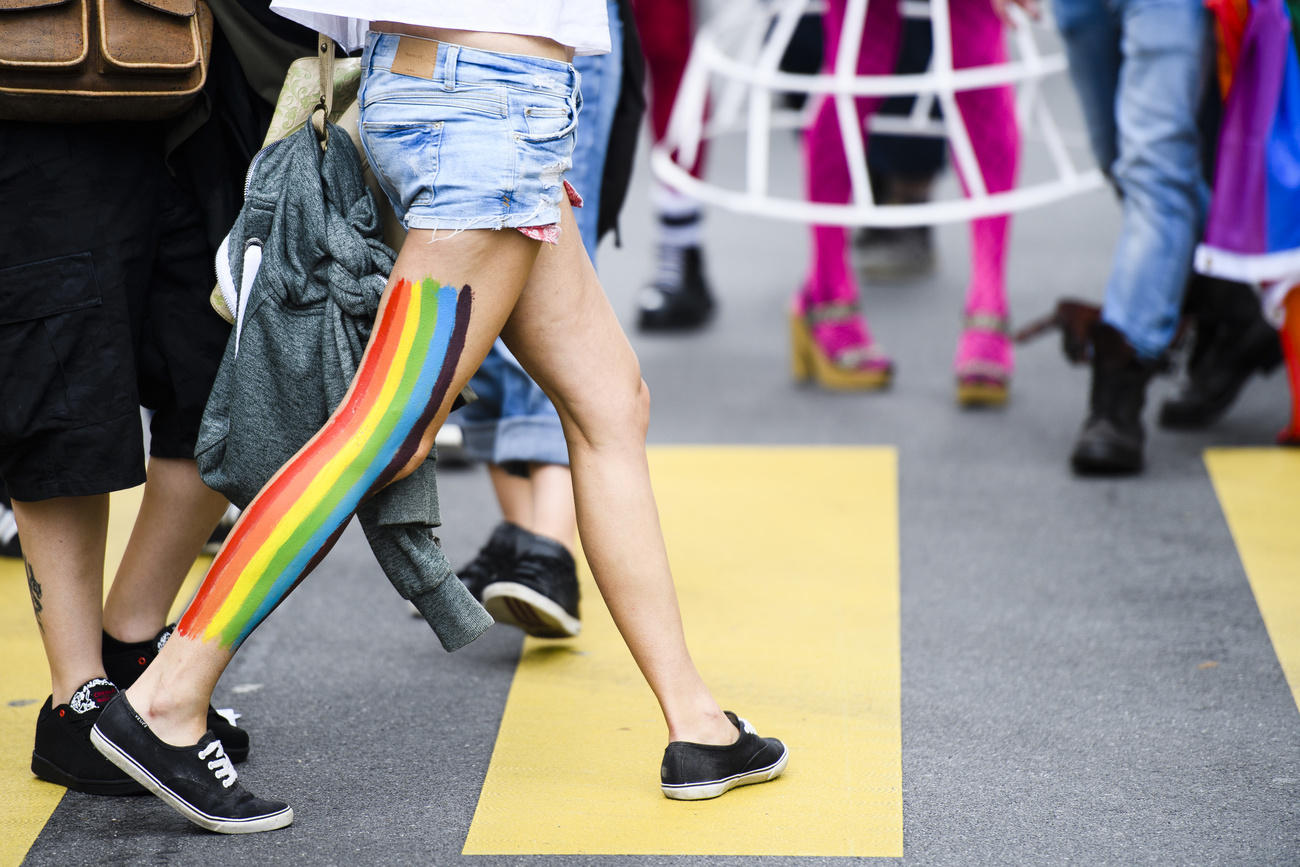
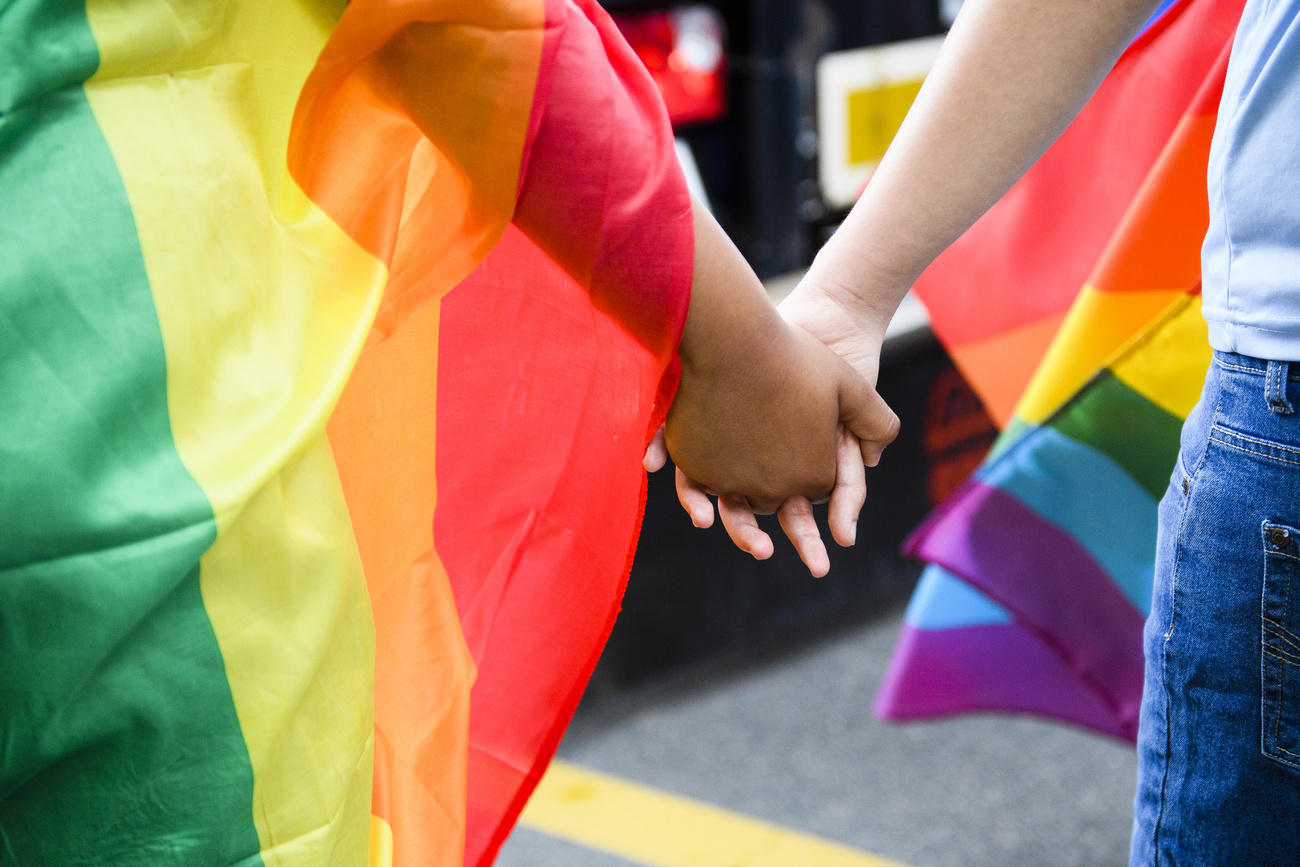

You can find an overview of ongoing debates with our journalists here . Please join us!
If you want to start a conversation about a topic raised in this article or want to report factual errors, email us at english@swissinfo.ch.